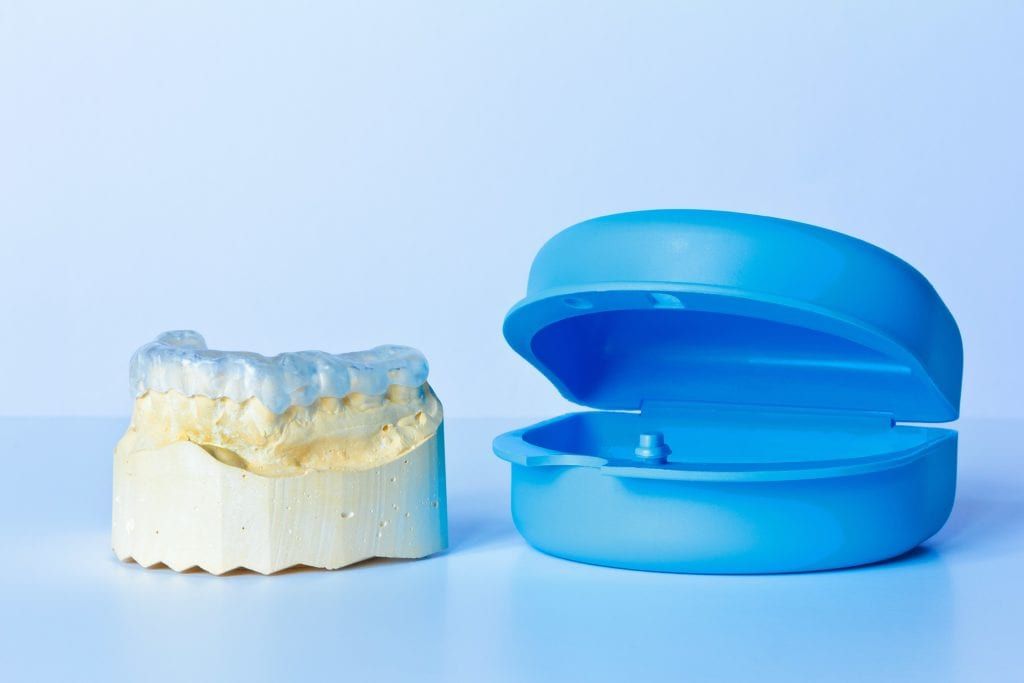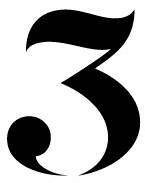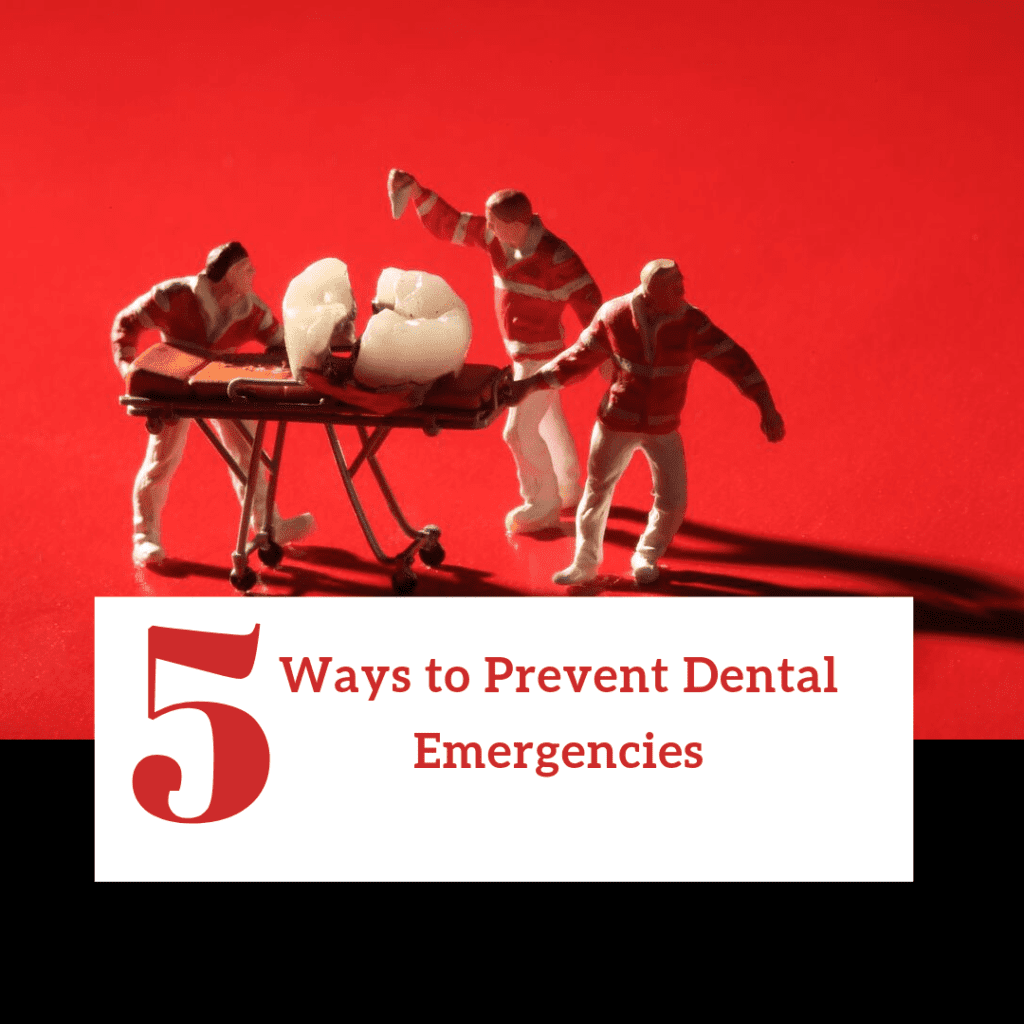Dental emergencies are situations that require immediate dental care to alleviate symptoms or preserve natural structures. Things such as cracked or chipped teeth, sudden or severe toothaches, or displaced dental restorations are all examples of dental emergencies.
While some dental emergencies occur randomly, others can be preventable. The best way to manage a dental emergency is to prevent one from happening. Here are five ways to prevent dental emergencies:


Wear a Mouth Guard
Dental mouth guards, also known as night guards or bite guards, are removable appliances that fit over your teeth to protect them. Usually fabricated from plastic, mouth guards prevent both external and internal forces from damaging your teeth. One common reason to wear a mouth guard is to protect your teeth while playing sports. Sports mouth guards are designed to protect the teeth from external forces caused by close contact sports. People who grind or clench their teeth can also benefit from wearing a night guard to prevent these behaviors while sleeping.

Avoid Parafunction
Parafunction is the term used to describe habitual functions of the teeth and jaws that are not considered natural. Examples of common dental parafunctions include: nail biting, chewing on pens, teeth grinding, and using teeth to open packages. While your teeth are able to withstand the force of biting and chewing, they are not always able to withstand the force exerted by these behaviors. This means that these behaviors can result in damage or premature wear of the teeth.


Avoid Chewing Extremely Hard Foods
Although biting and chewing are natural functions of the teeth, attempting to bite or chew extremely hard foods can result in damage to the teeth. Most commonly teeth will become chipped or cracked from foods that are too hard. For a list of the most common foods that can damage your teeth, see the American Dental Association’s “Top 9 Foods That Damage Your Teeth”.

Avoid Teeth Grinding or Clenching
People who regularly grind or clench their teeth are at a higher risk of experiencing a dental emergency. This is because teeth grinding and clenching places a great deal of stress on both the teeth and the jaw joint. Although the teeth are intended to meet while chewing, they are not intended to constantly bear the force of opposing teeth for extended periods of time. Teeth grinding or clenching can cause teeth to become cracked, chipped, or prematurely worn. Additionally people who grind or clench their teeth may also be more susceptible to tooth decay as a result of worn enamel.

Routine Dental Care
The American Dental Association recommends that you visit your dentist’s office at least once every six months for routine checkups and cleanings. Routine checkups ensure your oral health and help your dentist to identify possible issues early-on. Routine cleanings control the amount of plaque and tartar on the surface of your teeth and prevent both tooth decay and gum disease. Because teeth will tooth decay are more likely to require eventual emergency dental care, dental emergencies can be prevented by also preventing tooth decay. For more information, see “Preventative Dental Care”.
Overall, these five strategies should help you and your family to avoid dental emergencies and the need for immediate emergency dental care. By taking preventative measures such as wearing protective mouth guards and avoiding behaviors that can cause damage to your teeth, you will reduce the chances of enduring a dental emergency. Finally, routine visits to your general dentist means less visits to your emergency dentist.

Michael C. Shuck graduated from the College of William and Mary with a bachelor of science in Biology. He received his Doctor of Dental Surgery (DDS) degree from the Medical College of Virginia, Cum Laude. He takes part in many volunteer outreach events, including Virginia’s Mission of Mercy project, Virginia Special Olympics, Give Kids a Smile, and the Jamaica Project. Dr. Shuck also is a regular volunteer at Williamsburg’s Olde Towne Medical Center. He actively participates with Virginia’s Donated Dental Service. Dr. Shuck has been a practicing dentist in the Williamsburg, Virginia area since 2007.


